Celebrating Police Week: May 14-20, 2023 The evolution of police work
B.C.
2023-05-18 14:11 PDT
As we near the 150th anniversary of the RCMP on May 23, its remarkable to see how the role of police officers have changed over time; from the formation of the RCMP to the modern, innovative, community-based policing of today.
The organization originally known as the North-West Mounted Police was formed in 1873, and the first 150 recruits gathered at Lower Fort Garry, Manitoba to start training. The next summer the corps of 300 recruits (comprised of only men) set out on the March West setting up posts along the way which employed First Nations and Metis guides, scouts and interpreters.
The RCMP has grown and evolved significantly through that time. Far from covering the western frontier, the RCMP is now the federal and national police service in Canada and has been since 1920. The force employs over 30,000 staff including a range of police officers, public service employees and civilian members. The RCMP is recognized as around the world for its policing excellence and iconic Mountie
image.
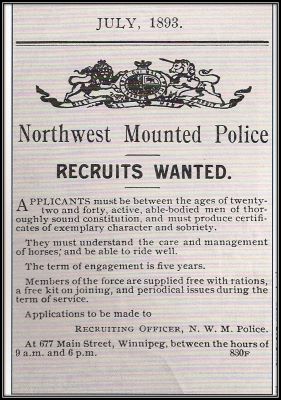
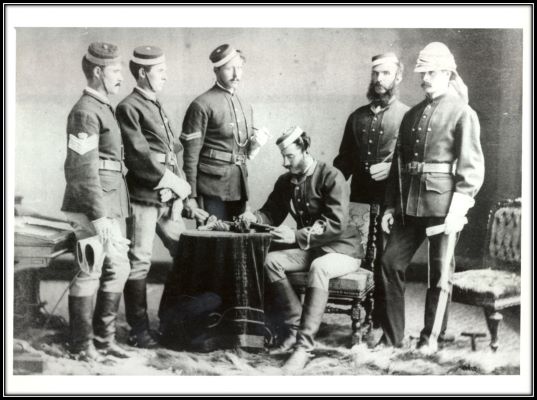
Back then, applicants could only apply to the Northwest Mounted Police if they were between the ages of twenty-two and forty,
says Constable Binita Cieslar, Media Relations Officer for the BC RCMP recruiting unit. At that time, recruits had to be considered ‘able-bodied men of thoroughly sound constitution’ and were required to be of exemplary character and sobriety. A minimum term engagement was five years and they were expected to care and maintain horses as well strong riders. Upon joining, members were supplied with rations and a free kit (uniform). Even today, RCMP uniforms are still often referred to as ‘Kit and clothing’ within the organization.
As the organization grew and evolved over the decades, so did the hiring and recruiting for police officers. For a long period of time, only men were permitted to become regular members within the RCMP. In 1973, the RCMP established the Native Special Constable Program to recruit more Indigenous police officers. The first troop of female police officers were sworn in, the following year in 1974.
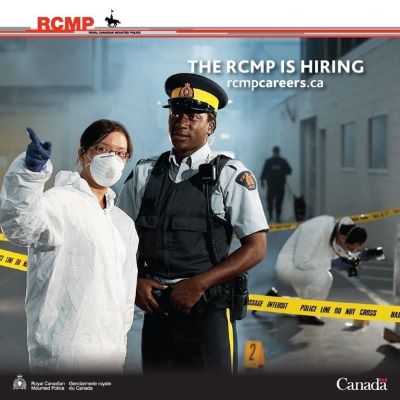
Today, the RCMP is a more inclusive workforce, reflecting the diversity of Canada and the communities it serves,
states Constable Cieslar. Now, the organization accepts applications from any individual regardless of gender, orientation, and ethnicity who meet the following requirements: Be a Canadian citizen or have permanent resident status in Canada; Be at least 18 years of age to apply; Be proficient in English and/or French; Possess a valid, unrestricted driver's licence; Possess a Canadian secondary school (high school) diploma or equivalent; Meet the health and psychological standards; Meet the vision standards; Meet the hearing standards and Meet the necessary level of physical abilities.
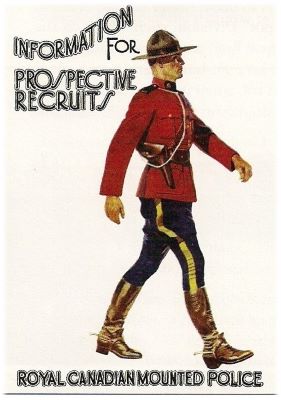
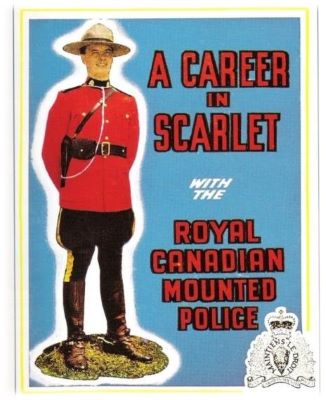
Over the decades, RCMP officers were mandated to provide public safety and enforce the provincial and federal laws of the time. Because the RCMP and its predecessors played a role in implementing or enforcing colonial rule, today's RCMP has inherited a complex legacy. Currently, the RCMP operates within three main areas of responsibility; frontline policing to all provinces and territories in Canada (except for Quebec and Ontario), federal policing and specialized police services.
Frontline policing is the heart of what the RCMP does and covers 75% of the geography of Canada. Frontline policing also known as contract policing is where most RCMP officers work, doing hands-on police work to support crime prevention, intervention, investigations and enforcement initiatives. Police officers working in frontline policing often work in community policing, directly with youth, provide traffic services and will provide support during major emergencies or natural disasters.
Police officers working in the area of federal policing are tasked with providing policing, law enforcement, investigative and preventative services to the federal government. This includes areas like border law enforcement, combatting drugs and organized crime and supporting international policing operations.
Specialized policing services provides critical support to frontline operations and to other Canadian law enforcement agencies and criminal justice communities. Specialized policing services includes areas such as analysis of violent crimes, forensic analyses, identification services, criminal records data and information, information management and technology as well as the coordination of criminal information and intelligence.
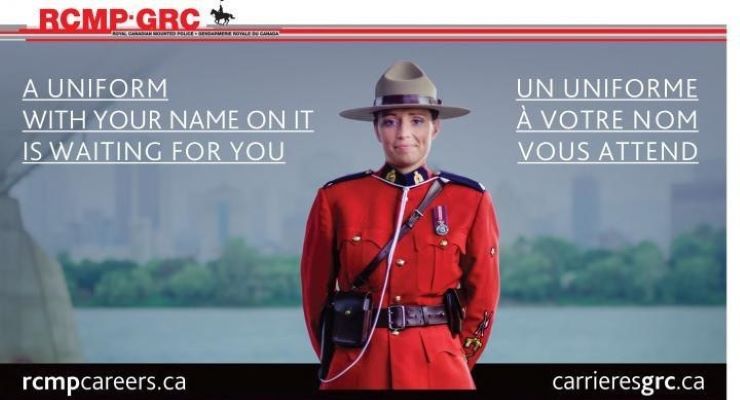
Working for the RCMP in today’s modernized policing environment means police officers have an opportunity to make a difference in every part of Canada, even around the world. The RCMP offers over 150 career specializations for police officers.
The RCMP is the only Canadian law enforcement agency where a police officer can work at the municipal, provincial, federal and international level,
says Chief Superintendent Mark Le Page, Human Resources Officer for the BC RCMP. Police officers with the RCMP have endless opportunities to work in a range of policing roles and specialized units to pursue their career interests.
RCMP officers can work throughout the country as Frontline officers, School Liaison Officers, Major Crime Investigators, Indigenous Policing Services, Forensic Identification, Drugs and Organized Crime Investigators, Financial Crime, Emergency Response Team, Integrated Border Enforcement Team, National Security, VIP Protective Service, and within the Police Dog Services, Marine Services, International Peace Operations, Explosives Disposal Unit.
Today, police officers can work in a variety of careers within the RCMP with a focus on preventing and solving crime, enforcing federal, provincial/territorial, and municipal laws, building and maintaining relationships with communities, and above all, keeping Canadians safe.
The RCMP is hiring now for new applicants, experienced police officers and civilians to join the organization.
Constable Courtney Twolan of the BC RCMP Recruiting Unit is optimistic when it comes to the future of the organization. She says, We are looking forward to welcoming a new generation of recruits into the RCMP family. One that reflects the diverse communities’ we police. British Columbia applicants are currently invited to become a part of a unique opportunity to be pre-posted back to British Columbia, at this time.
As the RCMP moves forward, it is important to acknowledge and learn from its complex legacy, and to collaborate with communities, Indigenous peoples and employees for the future. The RCMP is always aiming to improve community safety and well-being, looking forward to enhance investigative standards, and to deliver culturally responsive policing services.
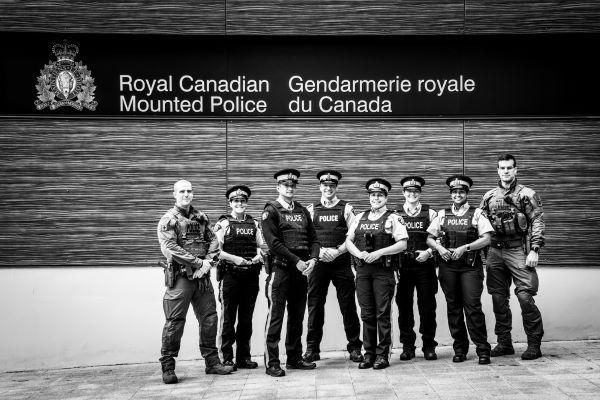
Although much has changed over the years, one constant has remained the same; those who work for the RCMP have always been and remain to be committed to serve their communities and residents.
Released by:
BC RCMP Communication Services
778-290-2929
Follow Us:
- Date modified: